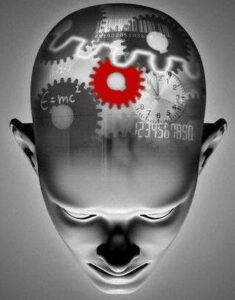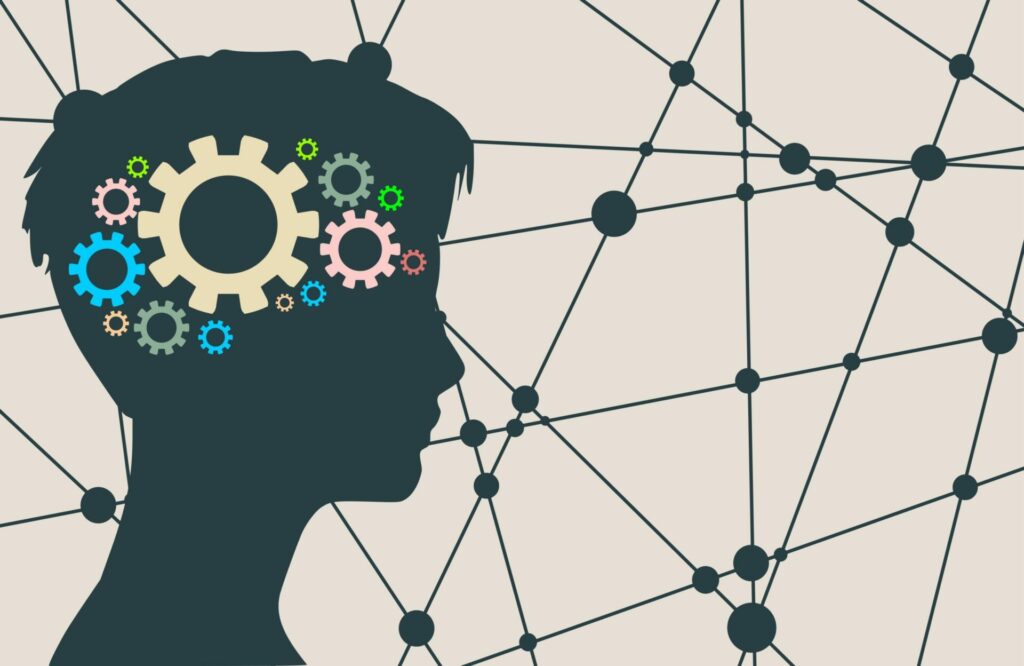Contents
Key Concepts of Experimental Psychology

Here are some key concepts of experimental psychology:
- Independent and dependent variables: An independent variable is a variable that is manipulated by the experimenter, while a dependent variable is a variable that is measured. For example, in an experiment on memory, the amount of time given to study the material could be the independent variable. At the same time, the number of items remembered could be the dependent variable.
- Randomization: Randomization refers to the process of randomly assigning participants to different experimental conditions. This helps to ensure that any differences between the groups are due to the experimental manipulation, rather than pre-existing differences between the participants.
- Control group: A control group is a group of participants who do not receive the experimental manipulation. This helps researchers compare the experimental manipulation’s effects to what would happen without it.
- Double-blind design: In a double-blind design, neither the participants nor the experimenters know which participants are in the experimental group and which are in the control group. This helps to prevent bias in the results.
- Operationalization: Operationalization refers to the process of defining a variable in a way that it can be measured. For example, if researchers are studying aggression, they might operationalize it as the number of times a participant presses a button that delivers a loud noise to another participant.
- Statistical analysis: Statistical analysis is used to determine the significance of the results. This involves using mathematical techniques to test whether the differences observed between groups are statistically significant.
By using these key concepts, experimental psychology provides a rigorous and reliable way to study human behavior and mental processes.
Applications of Experimental Psychology
Experimental psychology has a wide range of applications in various fields, including:
- Clinical psychology: Experimental psychology has been used to study the effectiveness of various psychological treatments for mental health conditions such as depression, anxiety, and post-traumatic stress disorder. It is also used to understand the underlying mechanisms of these conditions and develop new interventions.
- Education: Experimental psychology has been used to develop and test different teaching methods to improve learning outcomes. It has also been used to understand how children learn and develop cognitive skills.
- Marketing: Experimental psychology has been used to understand consumer behavior and preferences, and to develop effective marketing strategies.
- Human factors engineering: Experimental psychology has been used to design products and environments that are more user-friendly and safer for humans. For example, it has been used to design airplane cockpits, medical equipment, and automobile interfaces.
- Social psychology: Experimental psychology has been used to study various social phenomena, such as conformity, obedience, and persuasion. It has also been used to study prejudice, discrimination, and stereotypes.
Overall, experimental psychology has wide-ranging applications in many fields and has contributed to our understanding of human behavior in numerous ways. By using rigorous scientific methods, experimental psychology provides valuable insights. It can improve people’s lives and solves real-world problems.
Key Principles of Experimental Psychology

Here are some key principles of experimental psychology:
- Empiricism: Empiricism is the idea that knowledge is gained through observation and experimentation, rather than through intuition or speculation. Experimental psychology emphasizes the importance of collecting data to support hypotheses and theories.
- Objectivity: Objectivity is the principle of being unbiased and impartial in conducting research. Experimental psychologists strive to be objective by using standardized procedures, minimizing experimenter bias, and controlling for extraneous variables.
- Replication: Replication is the process of repeating an experiment to confirm the results. Experimental psychology emphasizes the importance of replication to ensure the reliability and validity of research findings.
- Parsimony: Parsimony is the principle of using the simplest explanation that can account for the data. Experimental psychologists strive to use parsimonious explanations to avoid unnecessary complexity in their theories.
- Generalizability: Generalizability is the principle of applying research findings to a broader population or context. Experimental psychology emphasizes the importance of generalizability by using representative samples, controlling for extraneous variables, and using standardized procedures.
- Ethical considerations: Experimental psychology emphasizes the importance of ethical considerations in conducting research. Researchers must obtain informed consent from participants, protect their privacy and confidentiality, and minimize any potential harm.
While applying experimental psychology, there are several considerations that researchers need to keep in mind to ensure the validity and reliability of their findings. Here are some of the key considerations:
- Sampling: Experimental psychologists need to ensure that their sample is representative of the population they want to generalize their findings to. Researchers should use random sampling techniques to avoid bias and ensure their results are generalizable to the larger population.
- Control of extraneous variables: Extraneous variables are any factors that can influence the outcome of an experiment but are not the variables of interest. Experimental psychologists need to control extraneous variables. This is to ensure that their findings are due to the manipulation of the independent variable. It is not to any other factors.
- Validity of measures: Experimental psychologists need to ensure that their measures are valid and reliable. Validity refers to the degree to which a measure accurately measures what it is supposed to measure, while reliability refers to the consistency of a measure over time. Researchers should use established measures that are valid and reliable.
- Replication: Replication is the process of repeating an experiment to confirm the results. Researchers should strive to replicate their findings to ensure that their results are reliable and not due to chance.
- Ethical considerations: Experimental psychologists must adhere to ethical guidelines when conducting research. They need to obtain informed consent from participants, protect their privacy and confidentiality, and minimize any potential harm.
- Data analysis: Experimental psychologists should use appropriate statistical techniques to analyze their data. They should also report effect sizes and confidence intervals to provide a more complete picture of their findings.
By keeping these considerations in mind, experimental psychologists can conduct rigorous and reliable research that contributes to our understanding of human behavior and mental processes.
Relevance In the Modern World

Experimental psychology continues to be relevant in the modern world for several reasons. Here are some examples:
- Mental health: Experimental psychology plays a crucial role in understanding and treating mental health disorders, such as depression, anxiety, and PTSD. By conducting experiments, researchers can test the effectiveness of different treatments and develop new interventions.
- Technology: As technology continues to advance, this psychology can help us design more user-friendly and effective technologies. For example, by conducting experiments on human factors, researchers can design interfaces that are easier to use and understand.
- Marketing: Experimental psychology is also relevant in the world of marketing, where researchers can use experiments to test the effectiveness of different advertising strategies and understand consumer behavior.
- Social issues: This psychology can provide valuable insights into social issues, such as prejudice, discrimination, and inequality. By conducting experiments, researchers can test the effectiveness of interventions aimed at reducing these social problems.
- Education: Experimental psychology can help us design more effective teaching methods and understand how students learn. By conducting experiments, researchers can test the effectiveness of different teaching strategies and identify ways to improve learning outcomes.
Conclusion
In conclusion, experimental psychology is a scientific approach to studying human behavior and mental processes. By using experiments and other rigorous research methods, experimental psychologists can test hypotheses and theories about various mental processes and contribute to our understanding of human behavior.
As our understanding of human behavior and mental processes continues to grow, experimental psychology will continue to play a crucial role in improving people’s lives and solving complex problems.
For more information, please contact MantraCare. Online therapy types include videoconferencing, phone sessions, messaging-based therapy, chat-based therapy, and therapy based on different problems. If you have any queries regarding Online Counseling experienced therapists at MantraCare can help: Book a trial therapy session


